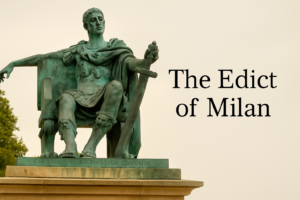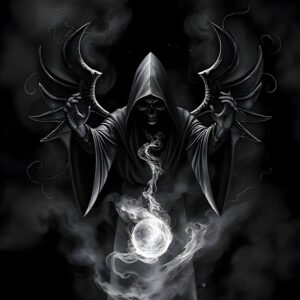Introduction
Chinese Folk Religion is a rich tapestry of indigenous religious practices and beliefs that have evolved over thousands of years in China. Characterized by a diverse array of deities, spirits, and ritual practices, Chinese Folk Religion reflects the deep-seated spiritual and cultural traditions of the Chinese people. This article explores the origins, core practices, rituals, and cultural significance of Chinese Folk Religion, offering insight into how it shapes and sustains the spiritual life of its practitioners.
Origins and Development
Chinese Folk Religion, often referred to as Shenism, predates major organized religions in China, such as Confucianism, Taoism, and Buddhism. Its roots are deeply embedded in ancient Chinese culture and cosmology, reflecting a blend of animistic beliefs, ancestor worship, and shamanistic practices.
The religious practices associated with Chinese Folk Religion have been shaped by various historical and cultural influences. Early Chinese society was heavily influenced by animistic and shamanistic traditions, which revered natural spirits and deities associated with various elements of the environment. Over time, these beliefs were integrated with the teachings of Confucianism, Taoism, and Buddhism, resulting in a unique syncretic religious tradition.
Core Beliefs and Philosophy
Chinese Folk Religion encompasses a wide range of beliefs and practices, but several core principles are central to its tradition:
– Pantheon of Deities: Chinese Folk Religion features a vast pantheon of gods, goddesses, and local spirits. These deities are often associated with specific aspects of life, such as health, wealth, and protection. Major deities include the Jade Emperor, the Queen Mother of the West, and various earth gods and kitchen gods. Each deity has specific attributes and is honored through various rituals and offerings.
– Ancestor Worship: Ancestor worship is a fundamental aspect of Chinese Folk Religion. It involves honoring deceased ancestors through rituals and offerings at family altars or ancestral halls. This practice reflects a deep sense of filial piety and respect for family lineage. Ancestors are believed to have an ongoing influence on the lives of their descendants, and maintaining a positive relationship with them is considered crucial for family harmony and prosperity.
– Spiritual Harmony: Chinese Folk Religion emphasizes maintaining harmony between humans and the spiritual world. This harmony is achieved through rituals, offerings, and moral conduct. The belief in a balance between the material and spiritual realms underscores the importance of living in accordance with spiritual principles and respecting the forces of nature.
– Rituals and Ceremonies: Rituals and ceremonies are central to Chinese Folk Religion and serve various purposes, including appeasing deities, seeking protection, and ensuring good fortune. These rituals often involve offerings of food, incense, and symbolic objects. Festivals and community gatherings also play a significant role in the religious life of practitioners.
– Talismanic Practices: Talismans and amulets are commonly used in Chinese Folk Religion to ward off evil spirits, bring good luck, and protect against misfortune. These objects are often inscribed with inscriptions or symbols believed to have spiritual power.
Worship and Practices
Chinese Folk Religion encompasses a range of worship practices and rituals that reflect its diverse beliefs:
– Temples and Shrines: Temples and shrines dedicated to various deities and spirits are common in Chinese Folk Religion. These sacred spaces serve as focal points for worship, rituals, and community gatherings. Visitors to temples often make offerings of incense, food, and symbolic items to honor the deities and seek their blessings.
– Ancestor Altars: Family altars are central to ancestor worship in Chinese Folk Religion. These altars are typically located in the home and are adorned with photographs or tablets representing deceased ancestors. Rituals at the altar involve offering food, burning incense, and performing prayers to honor and communicate with the ancestors.
– Festivals and Celebrations: Chinese Folk Religion is marked by numerous festivals and celebrations that reflect its rich cultural heritage. Festivals such as the Lunar New Year, Qingming Festival, and the Hungry Ghost Festival involve special rituals, communal activities, and offerings to deities and ancestors.
– Divination and Fortune-Telling: Divination practices, such as reading oracles, casting lots, and interpreting signs, are common in Chinese Folk Religion. These practices are used to gain insight into future events, make decisions, and seek guidance from the spiritual realm.
Cultural Impact
Chinese Folk Religion has had a profound influence on Chinese culture and society:
– Cultural Traditions: Many aspects of Chinese cultural traditions, including festivals, customs, and rituals, are rooted in the beliefs and practices of Chinese Folk Religion. The emphasis on ancestor worship, family values, and community cohesion reflects the enduring legacy of this religious tradition.
– Art and Symbolism: Chinese Folk Religion has inspired a rich tradition of art and symbolism. Temples, shrines, and ritual objects often feature intricate designs and symbolic representations of deities, spirits, and spiritual concepts. The art associated with Chinese Folk Religion reflects its deep spiritual and cultural significance.
– Social Practices: The principles of Chinese Folk Religion continue to influence social practices and community life. The emphasis on respect for ancestors, moral conduct, and community solidarity is evident in various aspects of daily life and social interactions.
Criticism and Controversies
While Chinese Folk Religion is widely practiced and respected, it has faced some criticism and controversy:
– Modernization and Secularism: The rise of modernization and secularism in China has led to changes in religious practices and beliefs. Some aspects of Chinese Folk Religion have been marginalized or transformed in response to contemporary social and cultural changes.
– Religious Syncretism: The blending of Chinese Folk Religion with other religious traditions, such as Confucianism, Taoism, and Buddhism, has led to debates about the authenticity and purity of religious practices. Syncretism can result in complex and diverse interpretations of religious beliefs.













